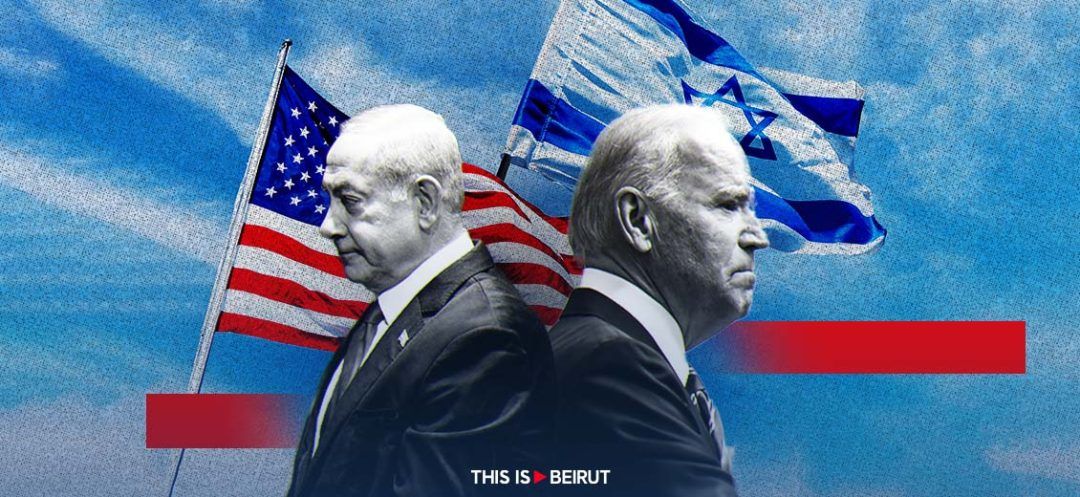- Home
- Middle East
- Are the US and Israel Going Their Separate Ways?

Since Hamas' attack on October 7, US President Joe Biden was the first to show his and his country’s unwavering support for Israel. But today, four months after the beginning of the war in Gaza, Biden's support has begun to falter.
The Israeli-American relationship is over 75 years old, with America being the first country to recognize the provisional government of the state of Israel in 1948. Since then, Israel has become the largest cumulative recipient of U.S. foreign aid, receiving about $300 billion in economic and military assistance in just 75 years.
The most notable instances of US-Israeli aid are happening now in the war in Gaza, where Biden introduced a $14 billion emergency fund to “support Israel in its war against Hamas.”
But recently, most notably with Israel’s attack on the Gazan city of Rafah, which is sheltering over 1.5 million Palestinians, Biden has warned Israeli Prime Minister Benjamin Netanyahu not to go through with the attack, citing the danger of civilian deaths. But why is Biden speaking up now, after the death of 28,800 Gazans?
Former MP Fares Souaid told This Is Beirut, “The world is now a small village, meaning regional wars can now affect local elections. We saw this in Ukraine and now in Gaza.”
This means Biden is now cleaning up his image ahead of the US presidential elections this year. We saw this in December when Biden referred to Israel’s military attacks as “indiscriminate bombing” and threatened to pull Israel’s international support.
As the war extends into its fifth month, Americans are increasingly expressing disapproval of the ongoing military aid, according to a report by the New York Times. Recent polls indicate that a majority now oppose it.
“A war of five months is too long,” journalist Ali Hamade explains, “It’s not only affecting Biden in the elections, but it’s also affecting Middle Eastern public opinion towards America. The country has become so involved in the war that now a Hamas victory would be an American loss before it would be an Israeli one.”
This is the aim of Biden's rebranding of America’s role in the war, Hamade suggests, for the country to be on the sidelines, and for him to appear as “critical” of the situation.
With Biden’s public distancing of the situation, and Israel’s stubbornness to pursue its military operation, is it possible that this divergence will lead to either a broken relationship or even a ceasefire in Gaza?
Both of these options are improbable. First, the American-Israeli relationship has become historical. While Americans disagree with their country’s involvement in the war in Gaza, recent polls show that over half of the population still supports the state of Israel. It would not be in Biden’s or any American politician’s benefit to ever sever ties with the state. His tactic is to instead distance himself from Netanyahu, who has built himself an image of a warmonger who will stop at nothing.
Second, experts doubt the ongoing American support of the war will change. Biden and Netanyahu may disagree publicly, but in reality, America’s actions are unchanged.
“There is no core disagreement on the aim of the war,” Hamade explains, “Both Israel and America cannot back down until Hamas is either defeated or out of Gaza.”
Moreover, America is still publicly opposing a ceasefire. Soon, Algeria is planning to advance another resolution in the UN Security Council calling for an immediate ceasefire. But both US Ambassador to the UN Linda Thomas-Greenfield and her deputy Robert Wood have indicated that Washington will oppose the measure.
“This diverging front they are putting on will lead to nothing,” according to Souaid, “Biden can pretend to distance himself for his image, but Israel can still claim that the war will not be over until all the hostages are free, meaning it has leeway to finish its military operation with or without public US support.”
Read more



Comments